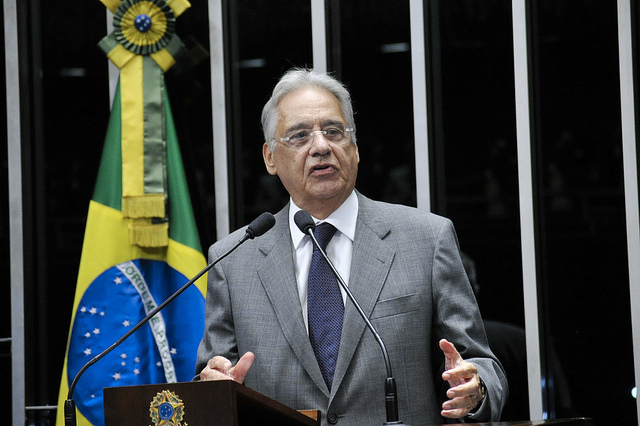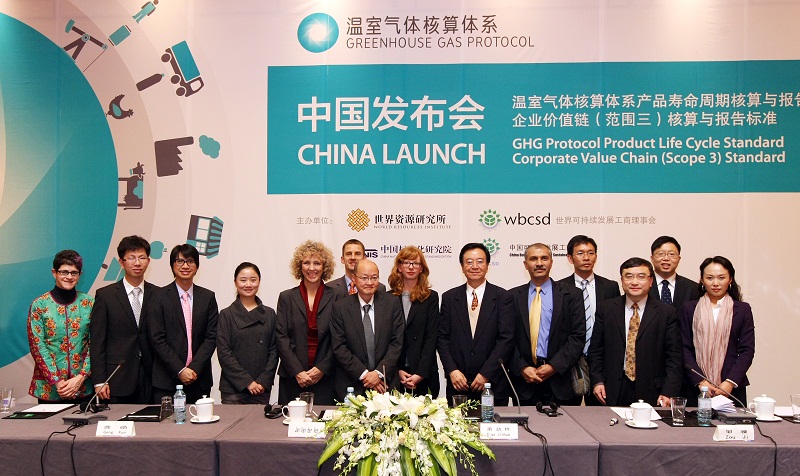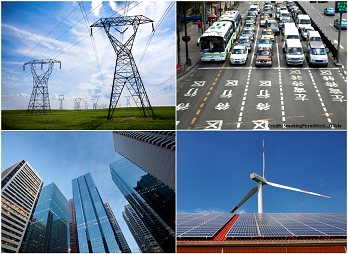Blog
'24’ and the LA Clippers use GHG Protocol to help offset emissions
Fox television hit ‘24’ and the Los Angeles Clippers are both using WRI’s GHG Protoco
Greenhouse Gas Protocol Launches in India
China Program Gains Significant Momentum
Designing a U.S. Greenhouse Gas Emissions Registry
In late February, WRI is publishing a policy brief called “Designing a U.S.
Call for Stakeholder Input on Potential Movie Production Guidance
The GHG Protocol periodically assesses the need for GHG accounting guidance within different business sectors and organizational types. We are currently scoping the GHG accounting needs associated with film and television production activities internationally, and are seeking stakeholders expert in this field to help illuminate the issues relating to GHG emission sources and accounting questions. Some of these potential issues include:
Cardoso Delivers Keynote at Inaugural GHG Forum in Brazil
Chinese Cement Companies Take Further Steps to Measure and Manage GHG Emissions
In July, the largest 42 cement companies in China will take further steps to measure and manage their GHG emissions. These companies produce approximately 400 million metric tons of cement per year, accounting for over 30% of Chinese cement production. Cement production is a major source of carbon dioxide emissions, accounting for five percent of the global total.
WRI to lead workshop on "Best Practices for Setting and Achieving Science-Based Targets" at Climate Leadership Conference, March 1 in Chicago
Join us March 1-3 in Chicago to connect with the nation’s leaders on climate at the sixth annual Climate Leadership Conference (CLC). The CLC convenes around U.S. EPA’s prestigious Climate Leadership Awards, and brings climate, energy and sustainability professionals together to address climate change through policy, innovation and business solutions.
WRI will host a workshop "Best Practices for Setting and Achieving Science-Based Targets" on Wednesday, March 1st, 2017 from 10:00am – 12:30pm.
PRESS RELEASE: New Greenhouse Gas Standards Unveiled in China for Corporate Value Chain and Product Emissions
Developed by the World Resources Institute (WRI) and the World Business Council for Sustainable Development (WBCSD), the Corporate Value Chain (Scope 3) and Product Life Cycle Standards will enable companies to save money, reduce risks, and gain competitive advantage. It is the first time the two organizations have officially released GHG Protocol standards in China.
Business, Government, and NGOs Partner to Launch Brazil GHG Protocol Program
RELEASE: New Greenhouse Gas Standards Unveiled for Corporate Value Chain and Products in India
The Greenhouse Gas Protocol launched two new standards today in New Delhi, India, to empower businesses to better measure, manage, and report their greenhouse gas emissions.
Workshop: Integrating Agriculture into Corporate GHG Inventories
Rio+20 in the Rear View: A Look at Rio de Janeiro’s New Greenhouse Gas Reduction Program
During the informal sessions of the U.N.’s Rio+20 conference on sustainable development last week, Rio de Janeiro city officials and the World Bank jointly launched a very timely project: the Rio Low-Carbon City Program.
Stakeholder Dialogue on Corporate GHG Accounting in India
India GHG Program Launch
On July 22, 2013, WRI India, The Energy and Resources Institute (TERI) and Confederation of Indian Industry (CII) launched the India GHG Program, a voluntary initiative to standardize measurement and management of GHG emissions in India.
Top Companies in Brazil Report Greenhouse Gas Emissions for the First Time
Petrobras, Ford Brasil, Walmart Brasil, and Whirlpool are some of the first companies to voluntarily measure and publicly report their greenhouse gas (GHG) emissions using the Brazil GHG Protocol Program.
GHG Protocol Supply Chain Initiative Holds Second Steering Committee Meeting in Geneva
The Steering Committee of the GHG Protocol’s Product and Supply Chain Initiative recently gathered at the offices of the WBCSD in Geneva, Switzerland to review early drafts of two new GHG Protocol standards and make recommendations on the direction of the initiative.
RELEASE: International Partners Release Pilot Global Protocol for Community-Scale Greenhouse Gas Emissions
C40, ICLEI, WRI and partners achieve a significant milestone towards establishing a single standard for measuring emissions for cities
Release of first draft of Mitigation Accounting Standards
WRI has released the first drafts of two new GHG Protocol mitigation accounting standards for review.








